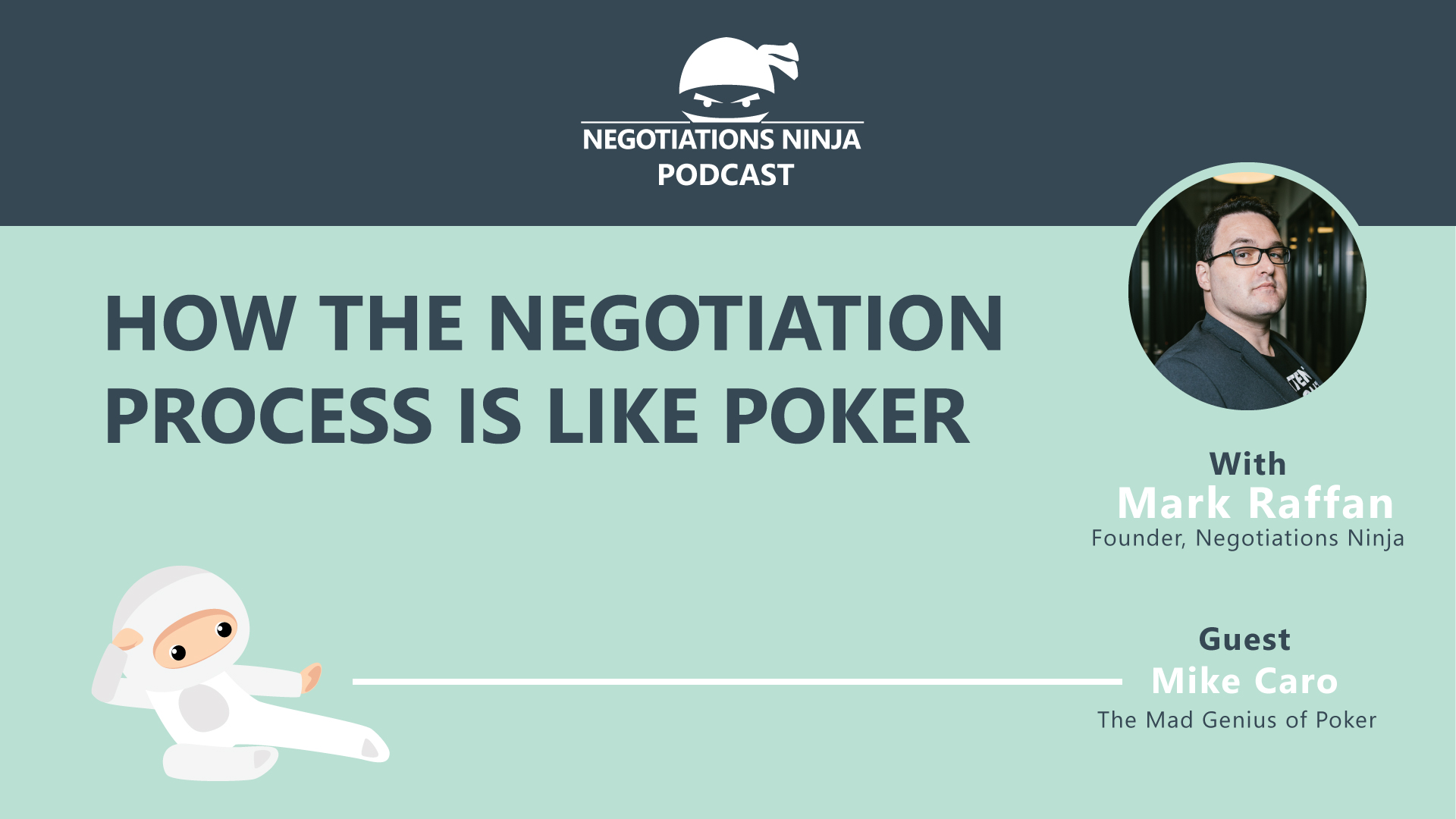The negotiations process can seem mysterious and difficult to those looking on from the outside, but Mike Caro says that it’s made up of the same principles and psychological dynamics that everyday life situations contain. Interestingly enough, Mike has developed that belief as one of the world’s foremost authorities on the game of Poker. It’s a tremendous offer to be able to present this conversation with Mike, who’s in seclusion somewhere in the Ozarks working on his latest brainchild. Join me for a fascinating journey into the mind of the Poker Mad Scientist, Mike Caro.
Outline of This Episode
- [0:34] Mike Caro’s amazing work, drawn from a life of poker playing and strategy
- [3:20] The decision Mike made to move to a remote spot in the Ozarks
- [6:02] Observations on how poker and life compare and overlap
- [8:17] Caro’s law of loose wiring
- [11:00] Learning to make better decisions when it matters most
- [16:31] The psychology behind poker and the negotiation process
- [20:13] Misinterpreting body language, nervousness, and more
- [28:57] The biggest misconception about Poker: It’s about winning the pot
- [34:35] Applying the weak / strong demeanor presented in negotiations
- [37:33] Understanding the concept of “tilt” and how it impacts the negotiation process
In all negotiations, choices must be clearly connected to their benefits
One of the maxims that Mike Caro has developed that proves itself true time and time again is what he calls “Caro’s law of loose wiring.” It’s a principle he uses to remind himself that in any interaction, clarity about the advantages each party will receive from the interaction is key. Here’s the maxim:
If choices are not clearly connected to their benefits, people usually interact in ways that make outcomes unpredictable.
This principle is especially true in negotiations. As a negotiator, it’s vital that you tie your positions and proposals to the clear benefits those on the other side of the table will experience. When you do, the likelihood of them agreeing to your terms or some form of them increases exponentially. But when they can’t see what’s in it for them, unpredictable and unhelpful things will result.
The habit of making choices on a whim prompts us to be lazy in negotiation preparation
Mike points out that throughout the course of any given day we all make myriad choices without a second thought. We do so because they are not vital, not important choices to the activities of the day or the course of our lives. But this necessary learned behavior can have negative effects when it comes to negotiations.
It’s hard work to properly prepare for any negotiation. In fact, preparation is one of the most important skills to develop in the negotiation process. Applying yourself to diligent preparation enables you to more carefully understand who you are negotiating with, what their common behaviors and responses are, and how you can have the greatest likelihood of approaching them in a manner they will find beneficial to their needs. Mike’s advice: Learn not to be lazy in how you prepare for any negotiation.
Basics to help you avoid misinterpretation of body language and nervousness
There is a great deal of science behind the meaning of various body language characteristics and facial expressions and we are wise not to dismiss the discoveries that have been made. But sometimes the things we assume about posture and body language are not actually true.
Mike points out that in Poker, the natural inclination of players is to act the opposite of the hand they are dealt. So a person with a good hand will try to look a bit flustered or concerned. A person with a poor hand will try to appear confident. Poker players learn to pick up on these things so they are not fooled by the fake persona being projected. But in real life and in negotiations it’s not so clear.
People tend to be less calculated and careful about their body language and behavior in normal circumstances. In order for negotiators to be able to properly read the body language of those across the table, they need to baseline the other person’s behavior before they can expect to interpret body language. More important than understanding the body language, they need to figure out what the other person wants, based on what they have said (or are saying).
Mike has unorthodox but effective ways of getting clarity on the desires of others and suggests we implement them in our negotiations process, so be sure you listen.
Resources & People Mentioned
- Negotiations Ninja episode with Annie Duke
- https://ScoutRFP.com/negotiation (sponsor)
- Our previous podcast episode featuring Robert Greene
Connect with Mike Caro
- Mike’s website: https://www.poker1.com/
- MIke’s BOOK: Caro’s Book of Poker Tells
- MIke on Twitter: @MikeCaro
Connect With Mark
- Follow Negotiations Ninja on Twitter: @NegotiationPod
- Connect with Mark on LinkedIn
- Follow Negotiations Ninja on LinkedIn
- Connect on Instagram: @NegotiationPod




